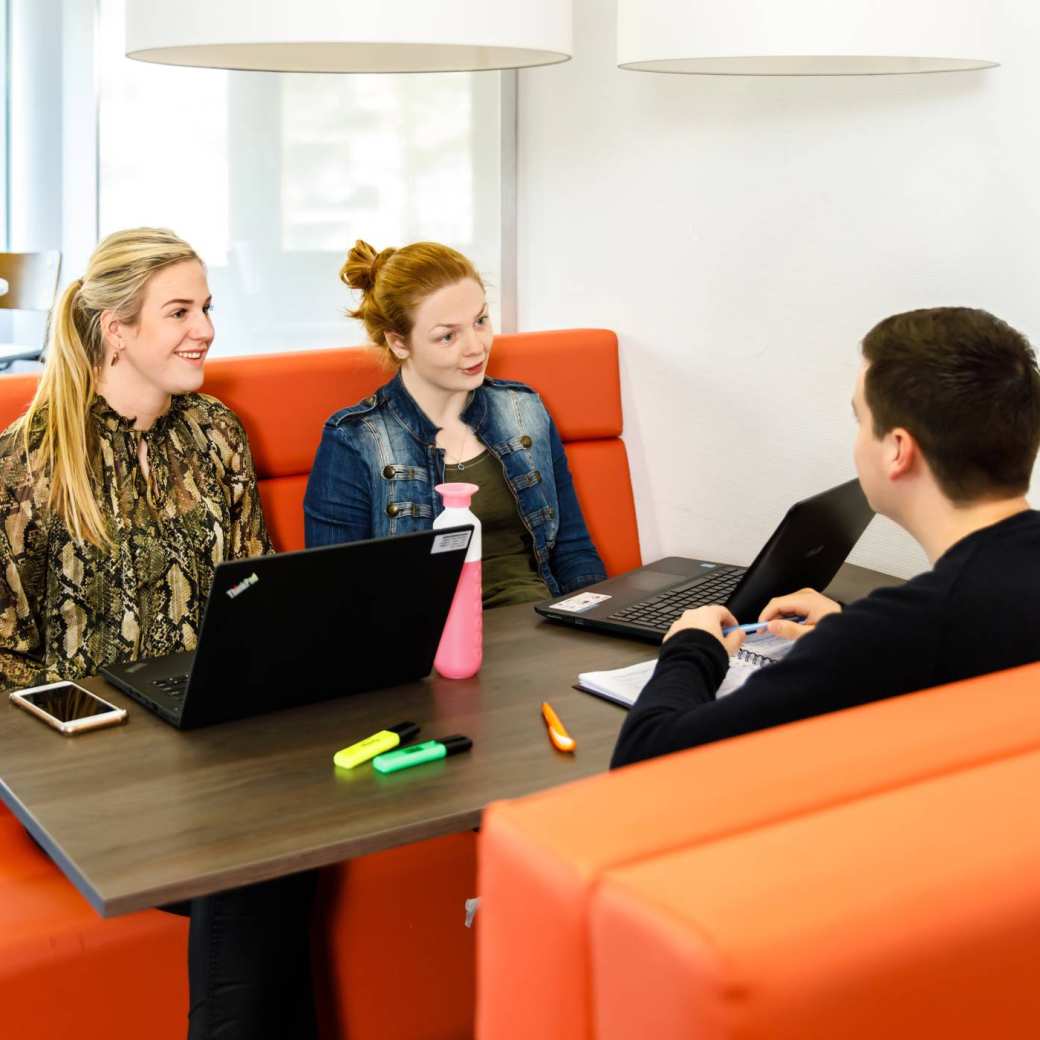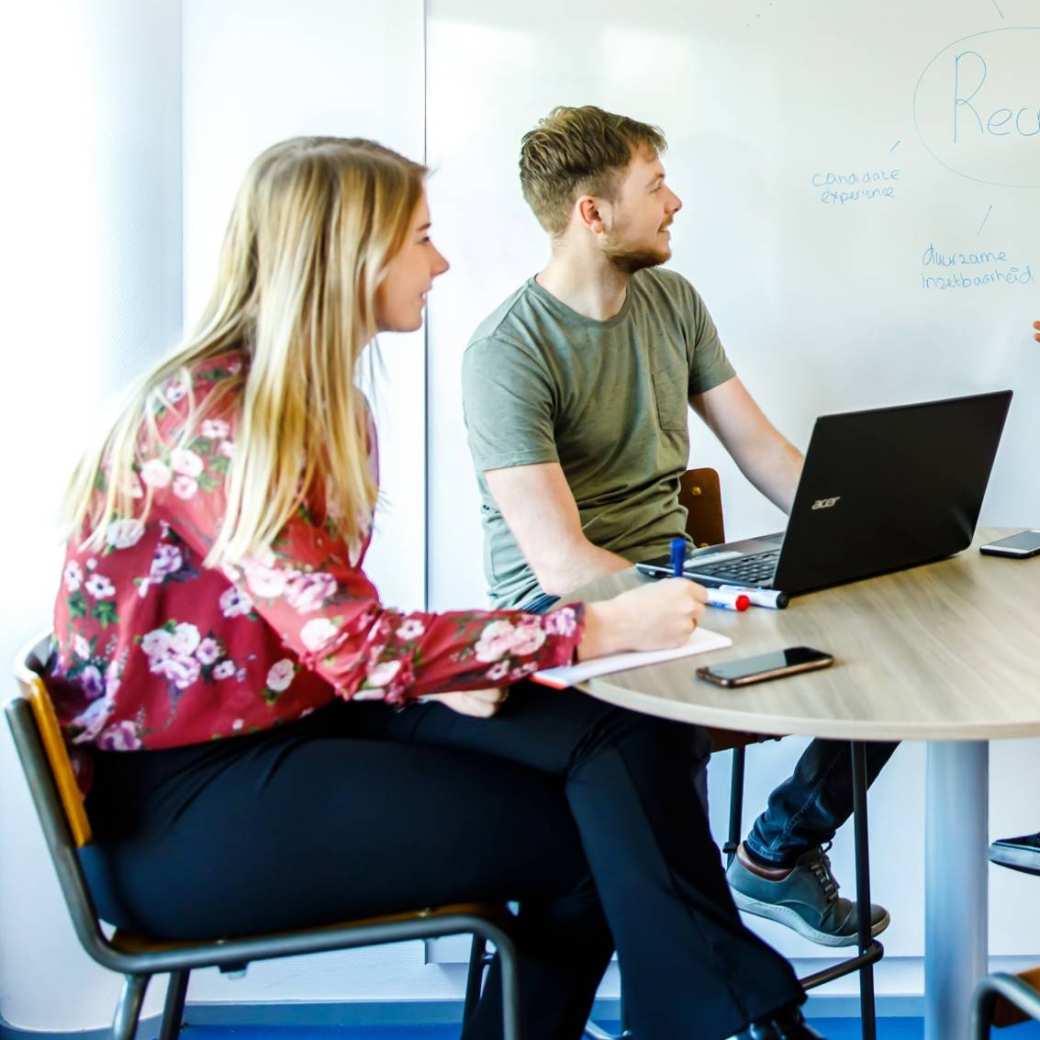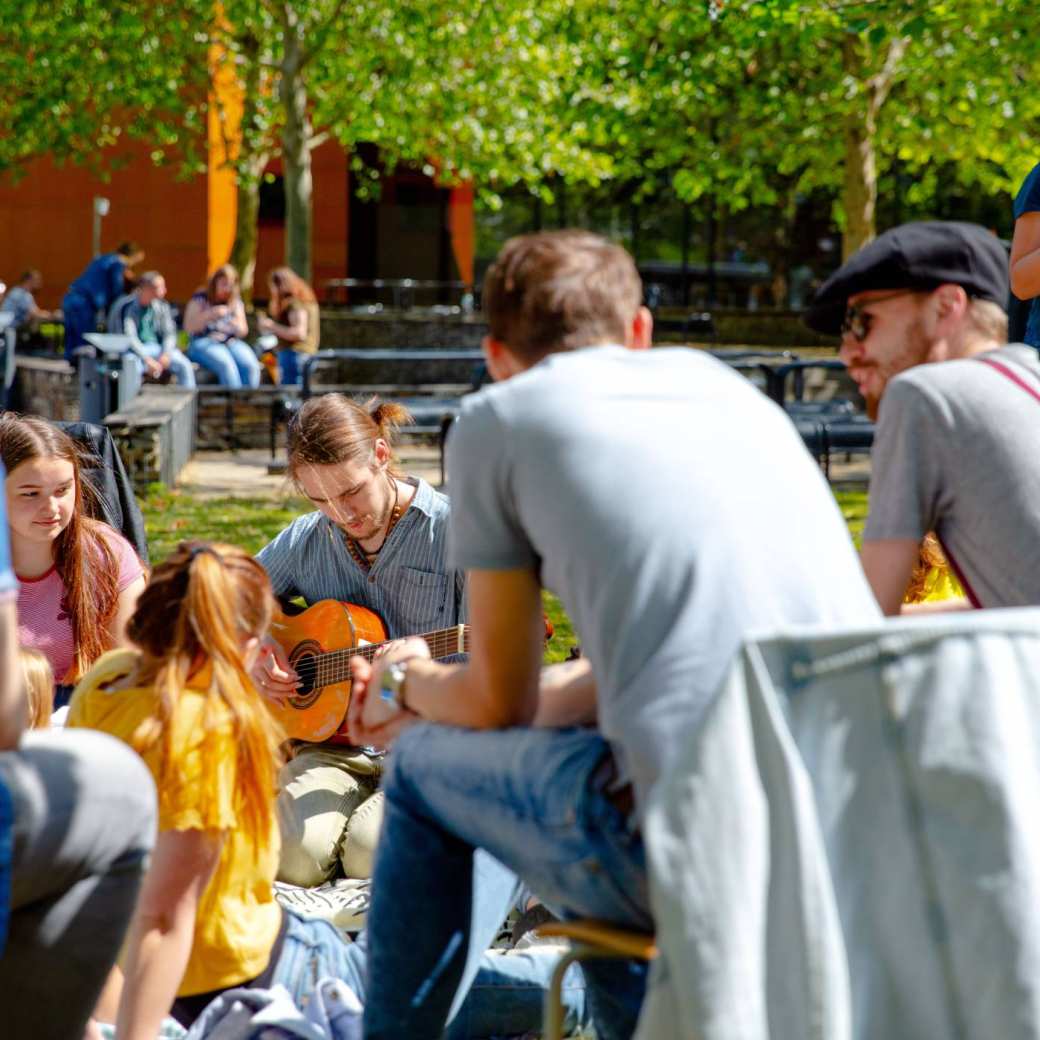Electronics: Design, Signals and Systems
Develop your design and prototype skills. Brush up on all things professional and practical. You learn the knowledge and skills needed to engineer an entire electronics system. And succeed in the industry.

The program in a nutshell
Your classes and workshops take place Monday through Friday. You get a feel for technical theory and improve your skill set. You go to workshops on how to put the theory into practice. And take tests to see how far you’ve come.
Over the semester you work with classmates and/or others from different degree programs. To realize your final project: a design and working prototype of an electronics system. In a presentation, you show the basic principles you used to complete the project. Give a mathematical breakdown of the process. And point out the phases of the V model in your results.

Program details
Learning outcomes
By the end of Electronics: Design, Signals and Systems you can:
- carry out a project together with people from various disciplines
- demonstrate skills in communication, consultation, reflection and cooperation
- give a mathematical description of the process
- substantiate your choice and determine the stability of the controller
- describe the (technical) results of the phases in the V model
- design and implement an analogue controller, assess its stability

Competences
You strengthen these competence areas during the program:
- Knowledge development
- Advanced mathematics
- Stability assessment
- Recognition of signal integrity
- Modelling

Dutch way of learning
The atmosphere in a Dutch classroom is quite informal and your lecturers are easy to talk to. In fact, at HAN you’re seen as a partner in the learning process. Class sizes are small and your lecturers encourage you to actively participate in class. To ask questions and give your own opinion. They also stimulate you to be creative and to discover things for yourself.
HAN International Intro
Get a good start to your studies during this week of orientation:
- learn about living in the Netherlands
- become familiar with the campus
- get on board with your exchange program
- make new friends!

What about credits and grading?
At HAN we use the European Credit Transfer and Accumulation System, or ECTS. It’s the standard credit system used in higher education across Europe. How does it work? One credit = 28 hours of study. Think of contact hours. Time spent working on assignments. Preparing for exams.
One semester = 30 credits = 840 hours of study. To earn credits, you need to pass your exams. What counts as a pass? A grade of at least 5.5.
Admission
What are the admission requirements? And how do I apply?
